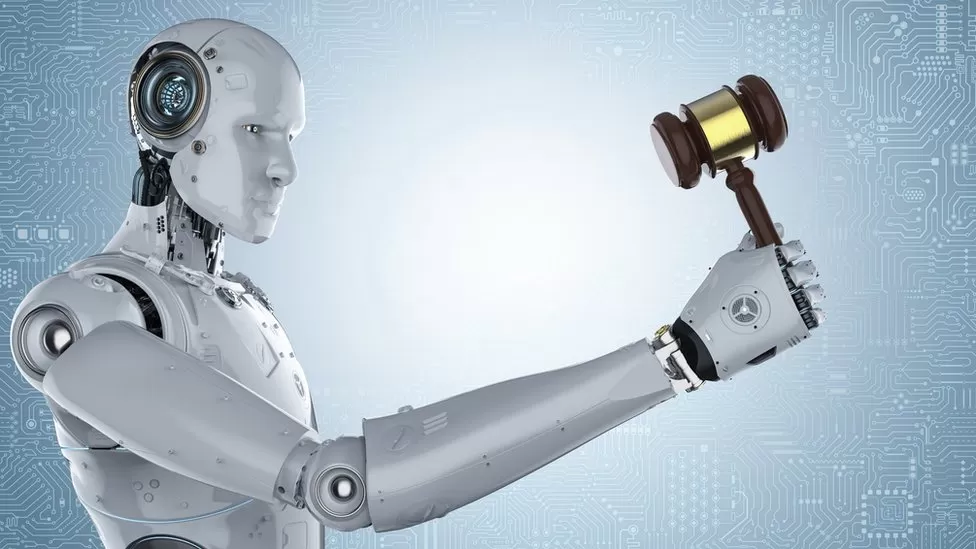What if you could pay just a fraction of the cost of legal representation and you could get a lawyer who is not just experienced but also incredibly entertaining? And what if you could get this lawyer who is also a robot with a personality that is just as sharp as the best lawyer around?
Robots are becoming more and more a part of our daily lives. From household appliances and security systems to self-driving cars and personal assistants, robots are making our lives easier. In the future, robots could be more common than humans–and even lawyers. In a ‘historic’ first, an AI-powered ‘robot lawyer’ will defend a human in US court.
What is a robot lawyer?
A robot lawyer is a computer program that can provide legal advice and automate many of the tasks associated with the practice of law. Robot lawyers use artificial intelligence (AI) and natural language processing (NLP) to understand legal questions and generate legally compliant responses. Robot lawyers can be used for a variety of tasks, including providing legal advice, researching case law, and creating legal documents. For example, a robot lawyer could be used to answer common questions about employment law or to generate a contract for a new business venture.
The “DoNotPay” firm developed the AI robot. It will function as a smartphone app and stream all court proceedings in real-time. The robot will instruct the defendant on what to say using headphones, much like a human attorney would do in real life.
The in-person speeding ticket hearing is scheduled to take place in a U.S. courtroom sometime in February. DoNotPay will also cover the traffic ticket fine if the defendant loses the case.
The AI will reportedly analyse the courtroom arguments instead of responding to every statement made in the court.
“We are trying to minimise our legal liability,” DoNotPay founder and CEO, Joshua Browder was quoted as saying by New Scientist. “And it’s not good if it actually twists facts and is too manipulative.”
Joshua Browder established the chatbot for legal services known as DoNotPay in 2015. It was introduced as a chatbot to give users who were facing late fees or fines legal guidance.
DoNotPay was originally created to solve a personal problem experienced by its founder, according to Harvard Business School. While attending Stanford, Joshua Browder repeatedly earned parking tickets for forgetting to feed his meter. A friend suggested that he contest the tickets to have them reduced. He wrote a letter to the city and his fine was reduced. This seemingly minor interaction exposed Browder to a larger truth: there are dozens of fines, tickets, contracts, and terms that the average consumer could contest, but doesn’t because they either don’t have time or because it’s not financially feasible to use a lawyer to do so. Browder set out to fix that problem, and DoNotPay was born.
Today the DoNotPay robot lawyer service creates value in a few key ways:
- It helps people access refunds, reductions, and cancellations that they are entitled to but do not currently have the resources or know how to access.
- It reduces the cost of adjudicating small claims which helps both claimants and companies reduce the amount of money they spend on legal fees.
- Over time the DoNotPay robot lawyer uses AI to get better at arguing cases and pursuing legal recourse, helping customers to win more cases than they would’ve even with a credentialed human lawyer.
How will the world of law change with the presence of a robot lawyer?
The introduction of robot lawyers is transforming the legal profession, with the potential to revolutionize how legal services are provided. Robot lawyers are computer programs that are able to provide legal advice and automate many of the tasks associated with the practice of law. These programs are powered by artificial intelligence (AI) and natural language processing (NLP) to understand legal questions and generate legally compliant responses.
Robot lawyers could also have a major impact on the way law is practiced. By automating certain tasks, robot lawyers could free up more time for lawyers to focus on more complex legal issues, allowing them to provide more comprehensive legal services. Additionally, robot lawyers could help to reduce the amount of paperwork involved in the practice of law, streamlining legal processes and making them more efficient.
In addition, robot lawyers could also have a major impact on the judicial system. For example, robot lawyers could be used to provide legal advice to defendants in criminal cases, helping to ensure that everyone has access to quality legal representation. Additionally, robot lawyers could help to reduce the amount of time it takes for a case to be heard in court, as well as streamline the process of filing legal documents.
Finally, robot lawyers could also help to reduce the amount of bias and discrimination in the legal system. By providing unbiased legal advice and automating certain tasks, robot lawyers could help to ensure that legal proceedings are fair and just.
Overall, the introduction of robot lawyers has the potential to revolutionize the legal profession, making legal services more accessible and efficient. By automating certain tasks, providing legal advice, and reducing bias in the legal system, robot lawyers could help to ensure that everyone has access to quality legal representation.
